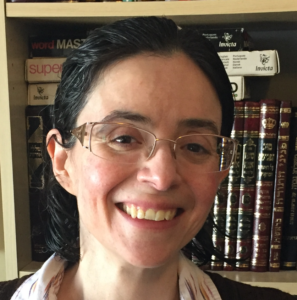Commentary on Parshat Shoftim (Deuteronomy 16:18 – 21:9)
Parshat Shoftim opens with the injunction of setting judges and officers within your gates (Deut. 16:18). The proximity of Parshat Shoftim to the month of Elul has given way to an interesting inner connection, brought by several Hasidic masters (Avodat Israel, Devarim, Shoftim 1 ; Sefat Emet, Shoftim 1; Mei HaShiloach, Shoftim 7): the idea that we have to set up judges and guards at the gates of our own person: eyes, ears, mouth and nose. Not just what comes out – our anger, our words, our desires – should be checked before it comes out, but also what comes in.
The work for betterment is not just for our inner souls. As we work internally, we are supposed to be working externally as well. Our individual improvement is to be mirrored in our collective improvement. The opening injunction of Parshat Shoftim is to be applied in several levels: our individual, our collective and even the level of the very judge we are speaking about.
In our times, we tend to forget what that means, individually and collectively. As individuals, we ought not to be complacent with the pettiness, the name-calling, the personal attacks we see progressively more common in our political discourse. We must not absorb those behaviors, and our judges and officers at the gates of our personhood need to be set up and do their work. Being right is no excuse for foul language and despicable behavior: our internal judges and officers cannot be silent.
Collectively, we ought to be reminded that the question of the behavior of judges – their responsibilities, their limits – is sprinkled throughout the Torah text, in too many places to list, indicating how important and how difficult achieving actual justice is. It is unfortunately a question that returns, over and over, to our reality, all the more so in our days.
When examining the question of who can be a judge, the Sefer HaChinuch (414:1) points out that judges need to be qualified – in the Chinuch’s words they need to know Torah law, and that is a mitzvah on its own. The “root of this mitzvah is obvious to all” (414:2) – the Sefer HaChinuch could not imagine a community which would accept that unqualified people are set up as judges. The qualifications put forth do not, however, stop at the knowledge of the Law. Because were the application of Justice a mere question of reading the book and spitting out a result, computers could be judges, and we would not need people involved.
The Sefer HaChinuch continues, making it explicit that a judge needs to have good character and be a decent human being, being able to “suppress their own evil inclinations”, and “have a brave heart to save the oppressed from the oppressor” (414:3).
Justice is not just the letter of the law: one of the Babylonian Talmud’s stories about the destruction of Jerusalem is precisely an indictment of the mere application of the law (Bava Metzia 30b), where there was justice in judgement, but not fairness.
Fairness is about going beyond the boundaries of the law, what our tradition calls “lifnim mishurat hadin.” It is about knowing, respecting and understanding the law, but together with that, it is seeing the position of the other, from the other’s perspective, and creating justice that will carry within itself compassion. Judges on earth, says the Kedushat Levi in his first commentary on Shoftim, must also reflect the attribute of Compassion employed in the celestial spheres. It is to judge understanding the deep truth of the words of Janusz Korczak: “Each person carries an entire world within himself, and everything exists twice: once the way it is, the other the way he perceives it with his own eyes and feelings.” (qtd. in Lifton, B.J., The King of Children: The Life and Death of Janusz Korczak, p. 193)
In that same page in the Talmud, we learn that going beyond the letter of the law can be tied to a Torah verse, thereby making it a mitzvah on its own. Because the Jewish tradition understands that the blind application of the law can bring about destruction. And that is why, according to the Sefer HaChinuch, a judge needs to be brave: standing up for what is right, and being able to do what is good (Deut. 6:18) are no small tasks. A judge can always fall into her or his evil inclination and be blinded by power.
Abhorrent values can be supported using the letter of the law, it is possible – and dare we say, common? – to use the legal apparatus in a dry and uncaring way. We as Jews should constantly remember that everything that was done to us in the Third Reich was legal. Taking the law to its mechanic, compassionless conclusion has led to one of the great tragedies of this year, maybe of this decade: the forceful separation of children and parents, with no plan for reunification.
May we have the courage to set up judges, internally and externally, who will do what is right and what is good, going beyond the mere mechanics of the law.
Rabbi Nelly Altenburger has been serving Congregation B’nai Israel in Danbury, CT since 2006. Originally from Brazil, she is passionate about fairness and providing opportunities for people to reach their potential, as well as firearm regulation and inspiring dynamic and meaningful Jewish life. She lives with her husband and four children.

